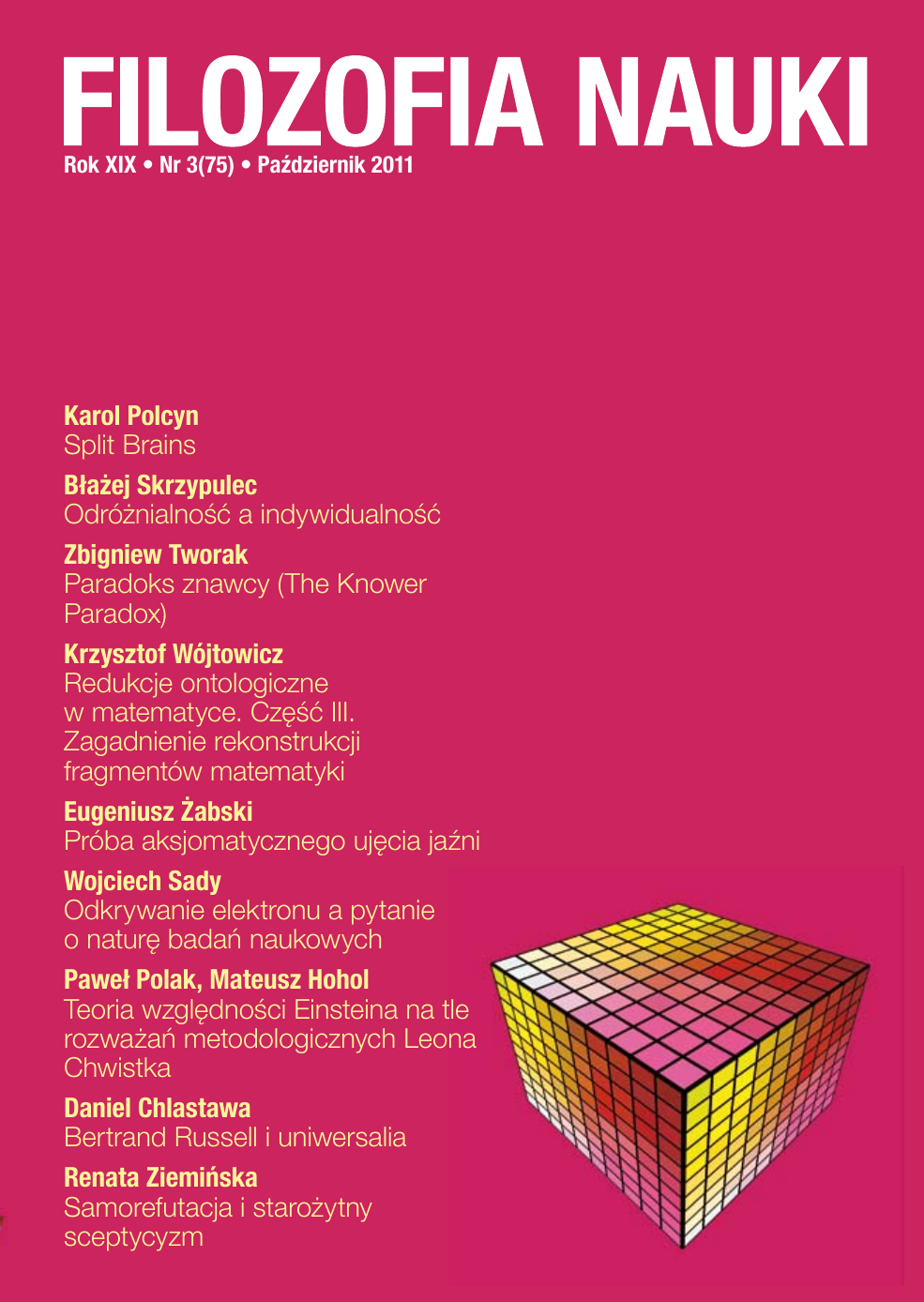Bertrand Russell i uniwersalia
Słowa kluczowe:
Russell Bertrand, universals, ontology, platonism, argument from similarityAbstrakt
Bertrand Russell paid considerable attention to the problem of universals throughout his long life. One of main factors which contributed to Russell’s rejection of Hegelian philosophy (which is commonly viewed as a beginning of analytic philosophy) was rejection of so-called internal relations theory, according to which relations reduce to properties of relata or of the whole composed of them. For Russell relations were examples of indispensable universals. Russell is also famous for developing the similarity argument for realism: if we want to get rid of universals by reducing them to sets of objects similar in a certain respect, we have to accept similarity as a genuine universal, for otherwise we are threatened by a vicious regress. The paper contains a presentation of evolution of Russell’s thought regarding universals and a defense of similarity argument against criticism of Michał Hempoliński, according to which causal explanations are sufficient to explain the similarity of objects. It is argued that such explanations are insufficient, as they do not apply to, for example, fundamental particles, like electrons, and the view that there are no fundamental (indivisible) particles is threatened by another vicious regress.Pobrania
Opublikowane
2011-09-01
Jak cytować
Chlastawa, D. (2011). Bertrand Russell i uniwersalia. Filozofia Nauki, 19(3), 127–149. Pobrano z https://www.fn.uw.edu.pl/index.php/fn/article/view/653
Numer
Dział
Artykuły















 Filozofia Nauki | ISSN 1230-6894 | e-ISSN 2657-5868
Filozofia Nauki | ISSN 1230-6894 | e-ISSN 2657-5868